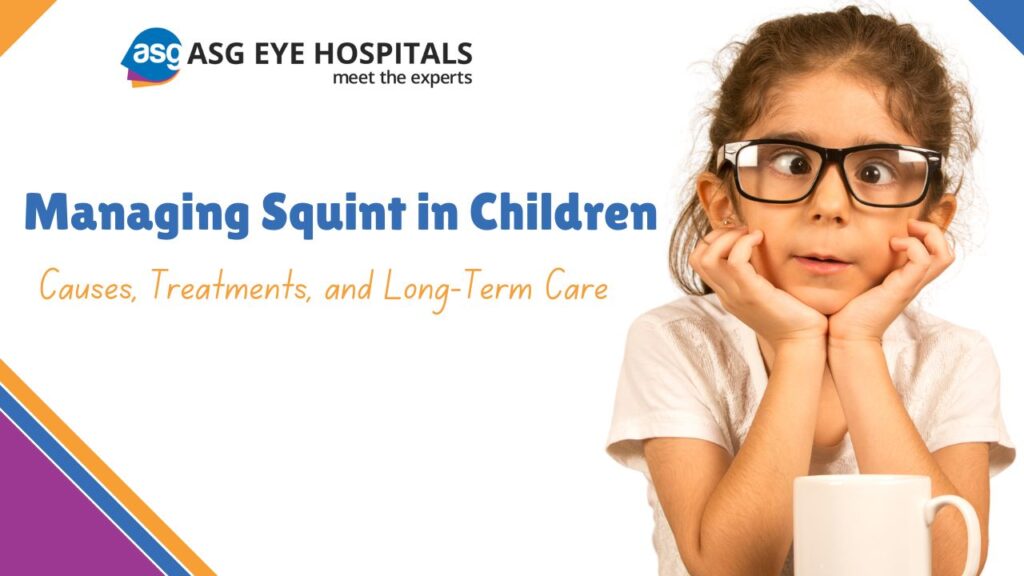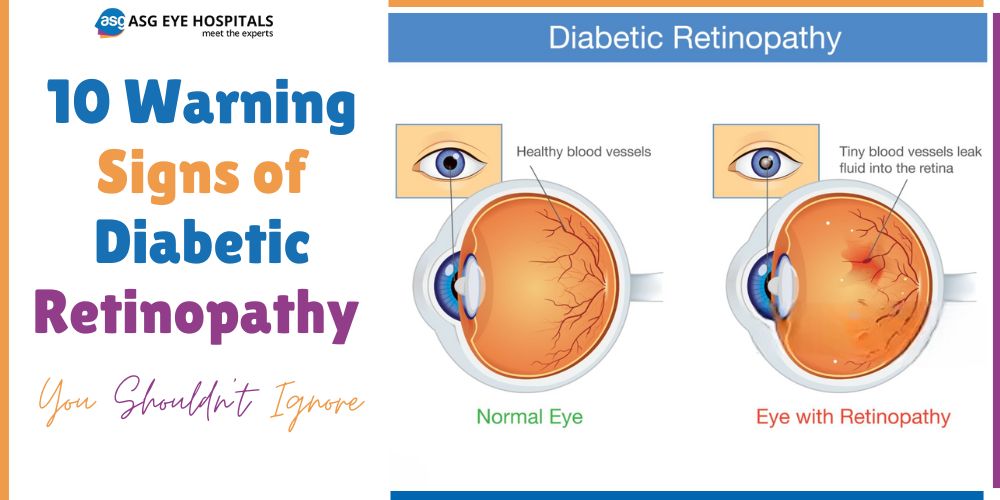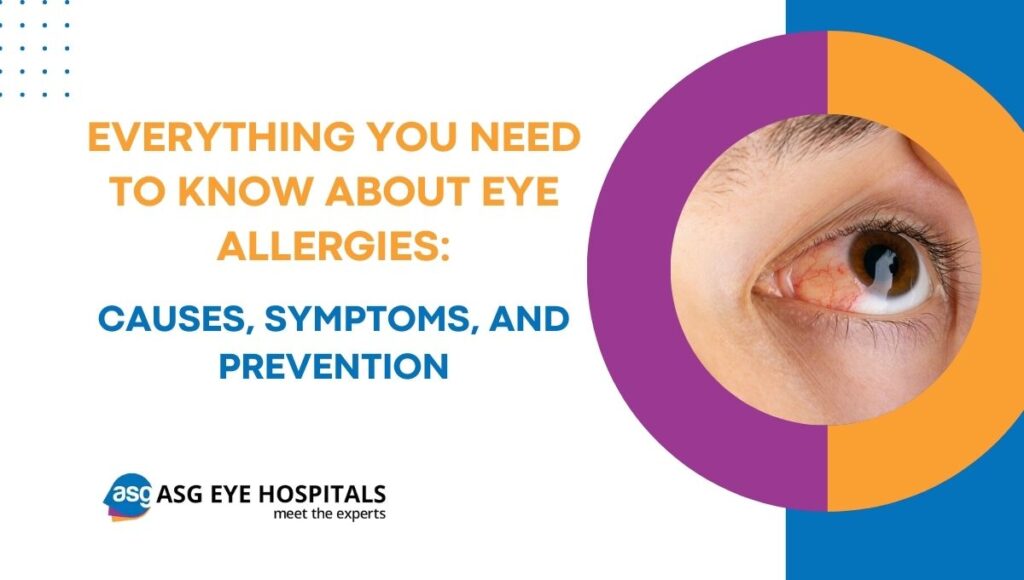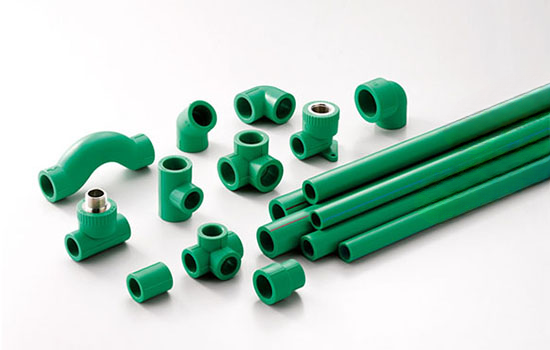Everything You Need to Know About Eye Allergies: Causes, Symptoms, and Prevention
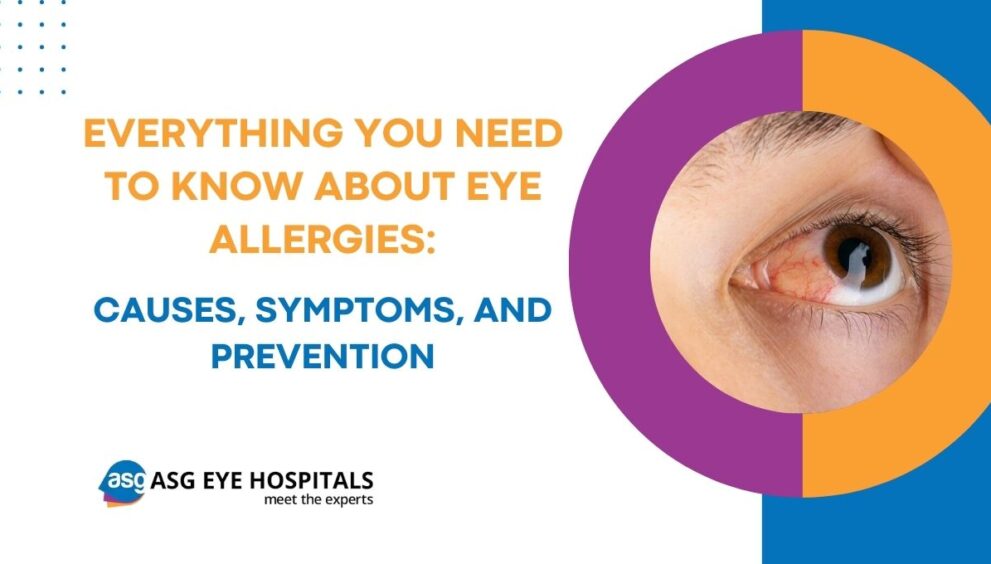
If you are dealing with swollen, itchy, and watery eyes, you might have eye allergies. But don’t worry, eye allergies are common and can be managed by following the right eye care steps. Globally, Eye allergies affect millions of people, including India. It makes our everyday tasks challenging. Eye allergies are also referred to as conjunctivitis. It occurs when our eyes react to something that irritates them.
In this blog, we will understand the causes of eye allergies and why some people are more prone to them than others.
What are eye allergies?
Eye allergies are a common condition that happens when the eyes react to allergens. Allergens are substances that trigger an allergic reaction in some individuals. When our eyes come into contact with these allergens, our immune system overreacts and releases chemicals including histamines, which are chemicals that cause inflammation and the symptoms of an allergic condition.
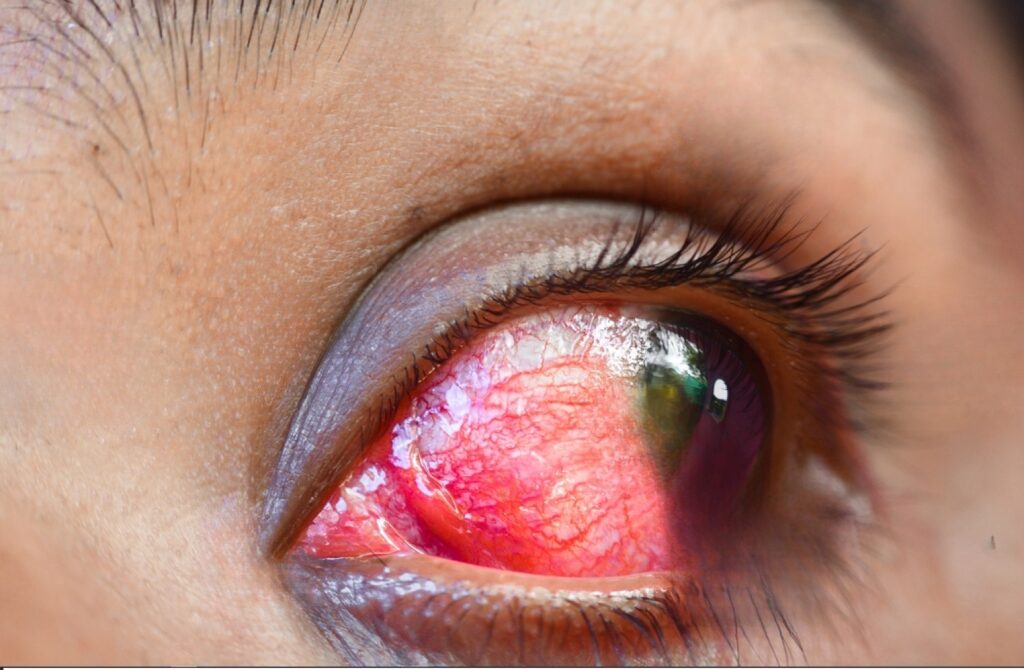
Common eye allergens
Some common allergens that cause eye allergies are pollen from trees, weeds, grass, mildew, dust mites (tiny bugs grow on carpet and rugs), pet dander (dead skin that pets shed), smoke (from cigarettes and other harmful chemicals), cosmetics, perfumes and mold spores (found in damp and humid environment).
When someone is exposed to these allergens, they may experience symptoms like redness, watering, itchiness, burning, or a sensation of gritting in the eyes. Eyes are an easy target for irritants and allergens because they are sensitive and exposed.
Eye allergies are not contagious they cannot spread from one person to another person. But you cannot avoid eye allergies, it can become more severe if you leave them untreated.
Sneezing and an itchy, stuffy nose are common indications of nasal allergies in people with eye allergies. Usually, it is a temporary illness brought on by seasonal allergens.
Common symptoms of eye allergies
You might experience the following symptoms if you have eye allergies.
- Puffy or swollen eyelids
- Irritated or uncomfortable burning sensation
- Bright lights may bother you
- Excessive tearing or watery eyes
- Itchy eyes
- Red eyes
- Dryness in eyes
You may also have a stuffy, itchy nose and sneezing if you already have nasal allergies. You can also have a headache, a scratchy or sore throat, or coughing.
How to prevent eye allergies
We can prevent eye allergies by reducing our exposure to allergens and taking steps to reduce our body’s reaction to them. Here we discuss some effective strategies to prevent eye allergies.
Keep your environment always clean
- Clean or vacuum furniture’s, carpets and rugs regularly by using a vacuum with HEPA filters.
- Wash bedsheets, pillow covers and blankets in hot water once a week to remove dust mites.
- To prevent the growth of mold, keep your home humidity level low (between 30-50%)
Limit your outdoor exposure
- During peak pollen season, make an effort to stay inside
- To prevent allergy during pollen, keep windows closed and use air conditioning with a clean filter.
- When you are outside, wear sunglasses with wrap around to protect your eyes from pollen and other airborne allergens or irritants.
Maintain personal hygiene
- To remove allergens that could transfer to your eyes, wash your hands regularly, especially after being outdoors.
- Do not rub your eyes, use cold compress to soothe swelling and itching. Rubbing eyes can worsen symptoms by releasing more histamine.
Make your home allergy proof by getting allergen barriers
- Use allergen proof pillow covers and mattresses to reduce the exposure to dust mites.
- Select hardwood tiles or flooring rater than carpet, which can trap allergens.
Maintain pets hygiene
- Pets should not be allowed in bedrooms or other places where you spend a lot of time.
- Giving your pets a weekly bath might help them shed less dander.
Maintain eye health
- Keep your contact lenses clean to stop allergens from building up and make sure you store them according to the correct protocols.
- Use eye drops to reduce the symptoms like redness and itching. Consult your eye doctor for the appropriate type.
Treatments for Eye Allergies
Some common treatments which can relieve symptoms and reduce inflammation caused by allergic reaction are:
- Look for artificial tears or lubricating eye drops that contain antihistamines or mast cell stabilizers can relive dryness and reduce redness and itchiness also wash away allergens from the surface of the eye.
- For severe symptoms of eye allergy, take prescription medications such as corticosteroids. These reduces inflammation and prescribed in the form og eye drops or nasal sprays.
- Decongestant eye drops help reduce redness and swelling by constricting blood vessels in the eyes. However, they should be used sparingly and for short periods, as long-term use can lead to rebound redness and dependency.
- In some cases, oral antihistamines may be prescribed to provide relief from systemic allergy symptoms, including itchy and watery eyes. However, oral antihistamines can cause dry eyes as a side effect, so they may not be suitable for everyone.
- Applying a cold compress over closed eyes can help soothe itching and reduce swelling associated with eye allergies. Cold compresses can also help constrict blood vessels and temporarily alleviate redness.
Eye allergies can be bothersome, there are various effective treatments available to provide relief and improve your quality of life. Whether you’re seeking over-the-counter remedies or prescription medications, consulting with qualified eye doctors or visiting reputable eye hospitals in India can ensure that you receive the best care tailored to your needs.
By staying informed about allergen triggers, practicing preventive measures, and seeking professional guidance when needed, you can manage your eye allergies effectively and enjoy clearer, more comfortable vision.

 English
English 


